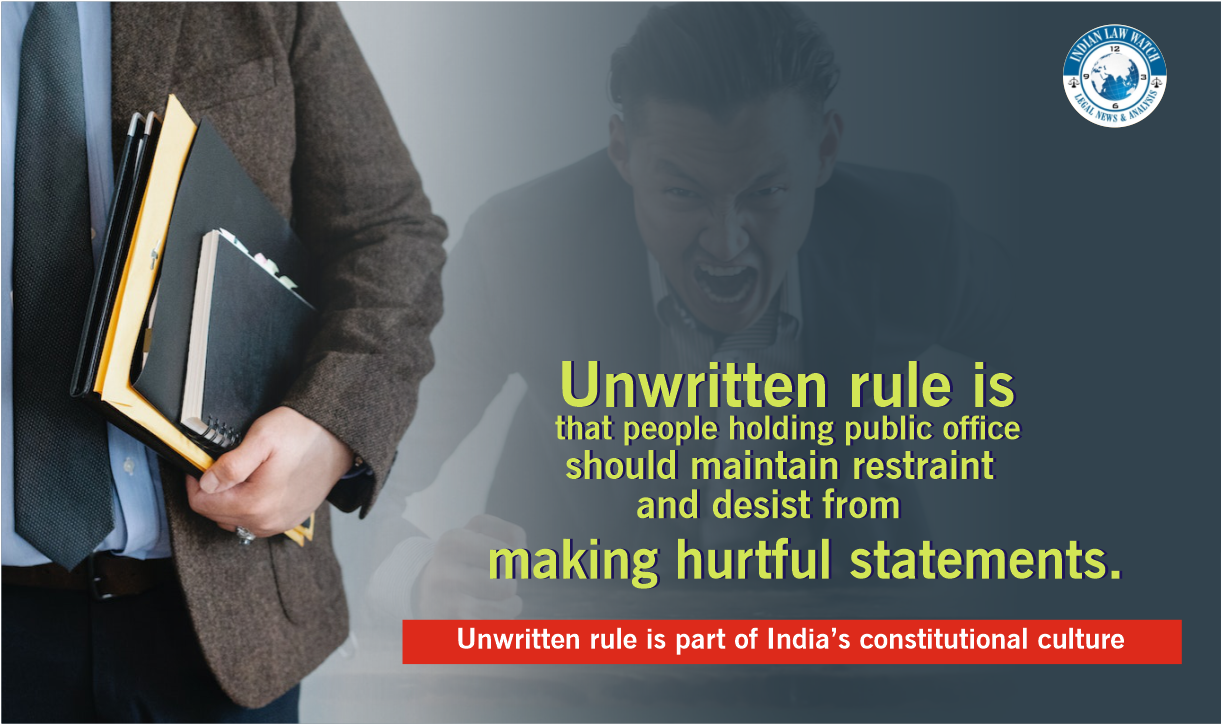

It is part of India’s constitutional culture that people holding public office should maintain restraint and desist from making hurtful statements, says apex court
The Supreme Court on Tuesday said there was an unwritten rule and it was part of India’s constitutional culture that people holding public office should maintain restraint and desist from making statements that are disparaging and hurt the feelings of others.
The court, however, wondered whether it could impose any restrictions on such remarks, which otherwise was within the domain of Parliament.

A five-judge constitution bench of Justices Abdul Nazeer, B.R. Gavai, A.S. Bopanna, V. Ramasubramanian and B.V. Nagarathna reserved its verdict after hearing attorney-general R. Venkataramani and solicitor-general Tushar Mehta, who suggested while appearing for the Centre that the matter be left to the wisdom of Parliament.


-
Advocate Kaleeswaram Raj, appearing for some petitioners, pleaded for imposing restrictions on inflammatory speeches by political leaders.
-
The apex court was dealing with a reference made to it by a three-judge bench in 2016 following criticism of then Uttar Pradesh minister Azam Khan’s observation that the alleged gang rape of a girl in Bulandshahr district was a “political conspiracy”.
-
Khan had subsequently tendered an unconditional apology. Mehta told the bench on Tuesday there was no need for the court to consider the issue as it was a mere academic exercise since the court had already laid down guidelines in the Tehseen Poonawala and Amish Devgan cases.
-
“It may thus not need your Lordships’ time since it is academic and without factual position, will be counterproductive and lead to a flurry of petitions that was not anyone’s intention,” Mehta said.
- Advocate Raj, however, said every constitution bench hearing was to some extent “academic”, but even in such cases the apex court had evolved a clear-cut “federalism doctrine”.
- He said the court had to examine to what extent it could interfere if a public functionary made a hate speech.
“Is it constitutional, in tune with constitutional morality? We suggest looking into foreign jurisprudence, a voluntary code of conduct and a special ombudsman,” Raj said.
Source: The Telegraph India





